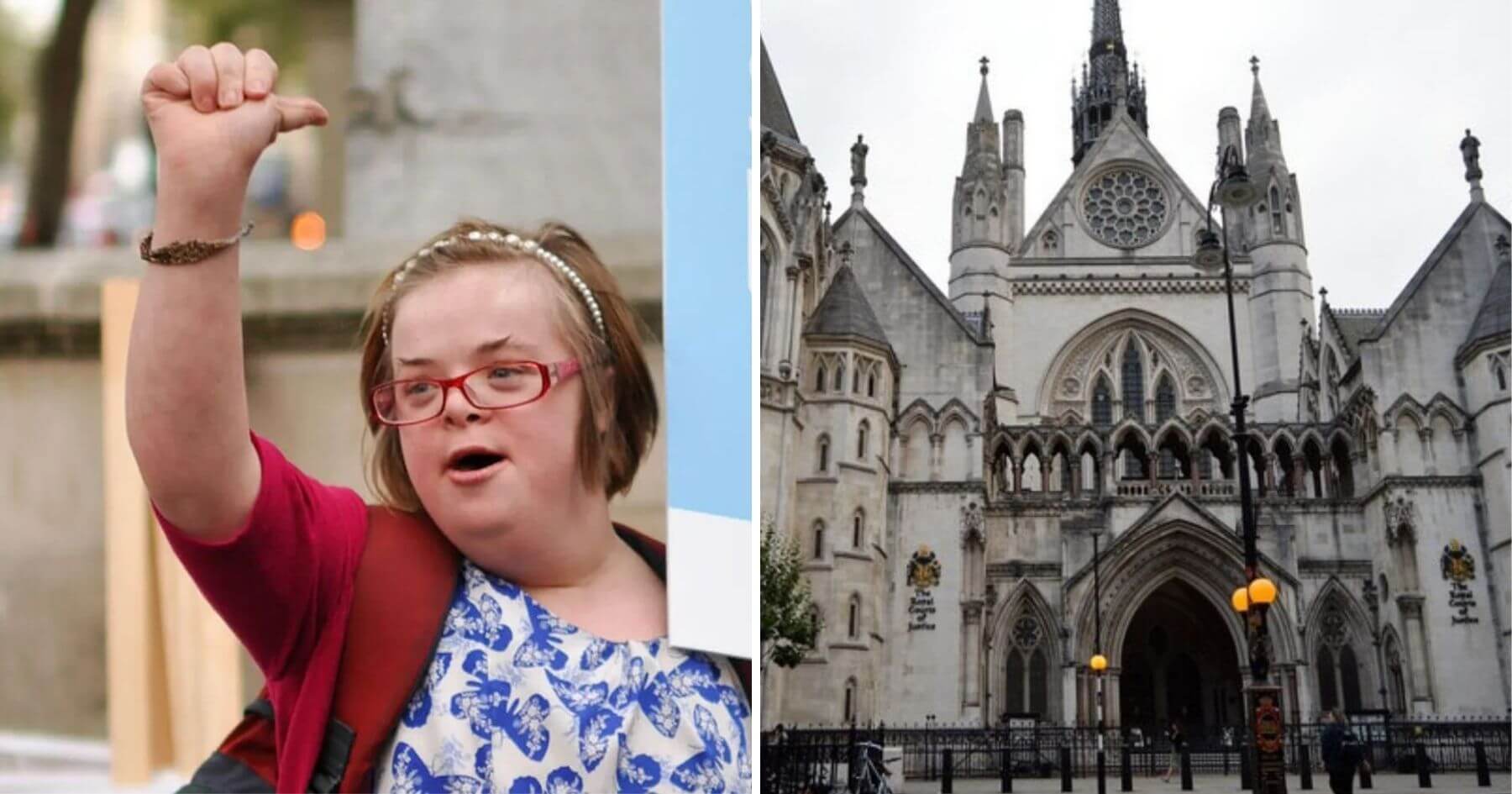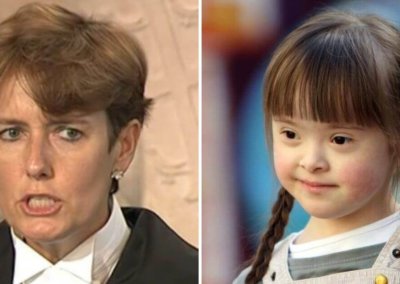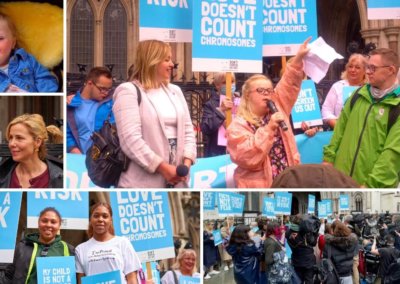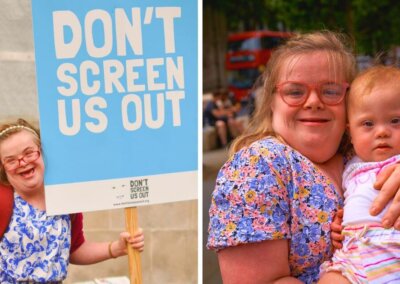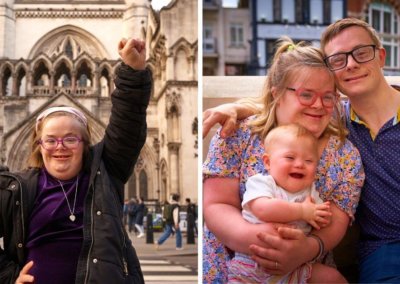A woman with Down’s syndrome has vowed to take her case against the Government over the UK’s discriminatory abortion law to the Court of Appeal after the High Court rejected her legal challenge.
Earlier today, Heidi Crowter, 26, who has Down’s syndrome and Máire Lea-Wilson, who has a two-year-old son with Down’s syndrome, had their case against the Government dismissed by the High Court.
The plaintiffs argue that the abortion law in the UK is discriminatory because abortion is available up to birth if the unborn child has a disability such as Down’s syndrome, whereas if the baby is not disabled, abortion is restricted after 24 weeks.
As the High Court was making its decision, a group of people with Down’s syndrome, their families and other supporters held a demonstration outside of the Royal Courts of Justice in support of Crowter and Lea-Wilson’s landmark case.
Since the announcement, Crowter and Lea-Wilson said that they will seek permission to go to the Court of Appeal.
“..thanks to this verdict the judges have upheld discrimination in the womb too.”
Heidi Crowter is a self-advocate who has campaigned for the last five years for equal treatment for those with Down’s syndrome in all areas of life. Máire Lea-Wilson was placed under pressure to have an abortion when a 34-week scan revealed her son had Down’s syndrome.
Crowter said: “The judges might not think it discriminates against me, the government might not think it discriminates against me but I am telling you that I do feel discriminated against….and the verdict doesn’t change how I and thousands in the Down’s syndrome community feel.
“We face discrimination every day in schools, in the work place and in society. And now thanks to this verdict the judges have upheld discrimination in the womb too.”
Ms Lea-Wilson, whose son has Down’s syndrome and was put under pressure to have an abortion after this was revealed at her 34-week scan, said: “Today’s High Court judgement effectively says that my two sons are not viewed as equals in the eyes of the law and I am incredibly sad and disappointed that the court has chosen not to recognise the value and worth of people with Down syndrome, like my son Aidan.”
“I am surprised and disappointed to see that the ruling gave very little consideration to the feelings of people with Down syndrome and how section 1(1)(d) of the Abortion Act has a very real and painful impact on their self worth and mental health. The judgement also gives very little consideration to the fact that many women, like myself, are pressured to abort much-wanted pregnancies at such a late stage in the context of fear and misinformation which is given to them.
Disability abortion in the UK
There were 3,083 disability-selective abortions in 2020. 693 of these abortions were due to babies being diagnosed with Down’s syndrome, an increase of 5.64% from 656 in 2019. The actual figures are likely to be much higher – a 2013 review showed 886 fetuses were aborted for Down’s syndrome in England and Wales in 2010 but only 482 were reported in Department of Health records. The underreporting was confirmed by a 2014 Department of Health review.
Right To Life UK spokesperson, Catherine Robinson, said: “The discrimination against people with Down’s syndrome and other disabilities is on clear display in our abortion laws. The law unambiguously says that their lives do not matter as much as others. Hopefully, the Court of Appeal will see the obvious that the High Court failed to see.”


